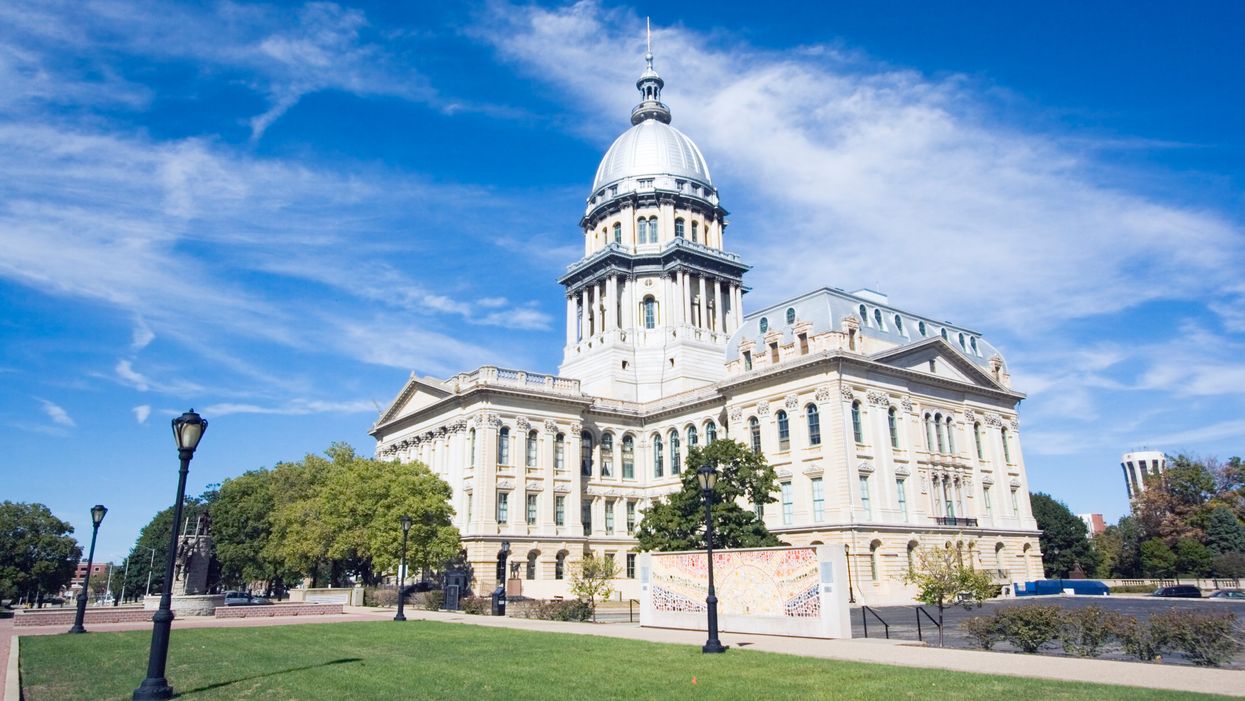Opponents of partisan gerrymandering have been fighting uphill for years to make Illinois one of the biggest blue states to take mapmaking authority away from politicians. Now the coronavirus has doomed the latest such effort.
The General Assembly has been in recess since last month because of the pandemic and now says it won't reconvene before Tuesday — two days after the deadline for completing legislation in time to permit voters to decide in November whether to create an independent redistricting commission.
This year is the last chance to reassign line-drawing power before another decade passes. That's because, after the census details come in, congressional and legislative maps for the remainder of the 2020s are supposed to be completed in time for the next election.
Virginia is for now the only state with a redistricting commission proposal on the ballot. Approval, which seems likely, would mean at least some maps in 14 states are next drawn by panels where neither party has the ability to perpetuate its hold on power.
The cause of getting such a referendum on the Illinois ballot was a longshot, given resistance by the Democrats in charge in Springfield. But in light of the Covid-19 outbreak it emerged as potentially the only other possible place for a statewide vote in time.
The reason is the measure's fate was in the hands of legislators who might have been swayed at the last minute. But petition drives would need to succeed in the five other states where signatures were being gathered: Arkansas, Nebraska, Nevada, Oklahoma and Oregon. And signature gathering has been stopped cold by a pandemic that is keeping the vast majority of Americans at home.
In Illinois, good-government groups have been pushing independent commission plans throughout the decade. A proposal for a statewide vote got close in 2016 but was blocked by the state Supreme Court on the grounds the proposed language did not meet strict legal requirements.
Proponents thought their chances would improve significantly once Democrat J.B. Pritzker became governor last year, because as a candidate he expressed support for removing legislators from the mapmaking process. But he has not put his weight behind that idea since taking office, instead vowing only to veto maps drawn by the General Assembly next year if he concludes they are overly partisan.
Putting a state constitutional amendment before the voters would require his signature along with three-fifths majorities in both the state House and state Senate. And with Democratic supermajorities in both, the party had little incentive to give up its ability to draw lines that would perpetuate its power.
As evidence of how successful the party's cartographic skills last time have worked out, Democrats took about 60 percent of the statewide vote for both the General Assembly and Congress in 2018 — but their candidates won twice as many legislative races as Republicans along with 13 of the 18 House seats.
A February poll found 82 percent of Democrats and 68 percent of Republicans in the state support an independent redistricting commission, with more than three-quarters of voters in Chicago, its suburbs and the rest of northern Illinois backing the idea along with a somewhat less lopsided majority downstate.
Known by supporters as the Fair Maps Amendment, the current proposal would create a 17-person panel — seven Democrats, seven Republicans and three politically unaffiliated members — appointed by the state's chief justice and the most senior Supreme Court justice of the other party. Any maps would have to win support from 11 commissioners.
As an alternative, good government groups are pondering the idea of pushing legislators to pass legislation that would create a similar commission but put final approval of its work in the hands of the General Assembly.




















